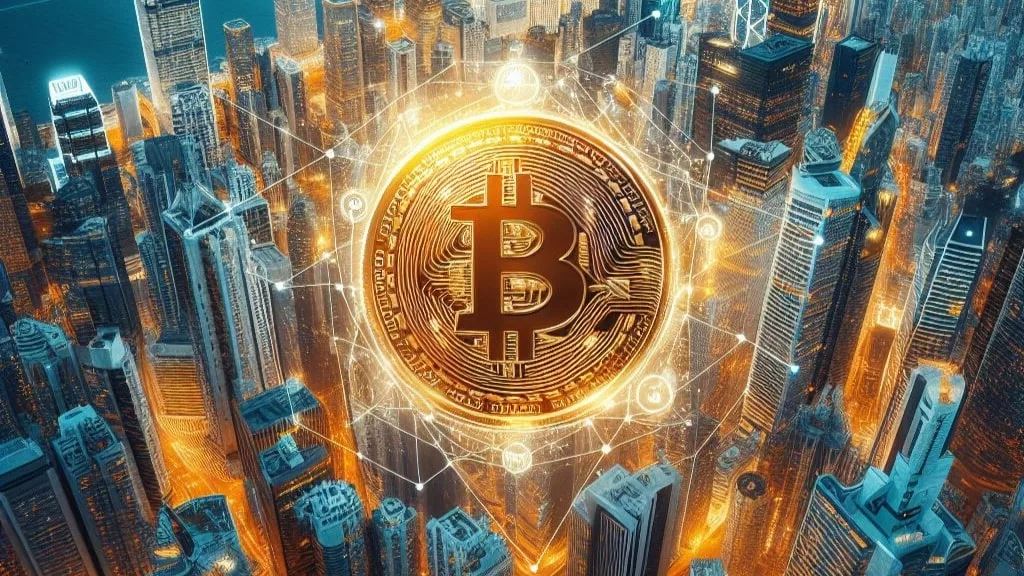
In the vibrant landscape of Latin America, the burgeoning world of cryptocurrency is making waves, stirring both opportunity and controversy across the region. Let’s take a journey through the latest headlines, where Bitcoin’s impact on El Salvador’s economic talks, Paraguay’s supportive stance on crypto mining, and Venezuela’s unveiling of a major corruption scheme are taking center stage.
Bitcoin’s Influence on El Salvador’s IMF Talks
El Salvador’s bold move to adopt Bitcoin as legal tender has thrust the nation into the global spotlight. However, this seismic shift is now casting a shadow over the country’s negotiations with the International Monetary Fund (IMF). Reports suggest that discussions between the Salvadoran government and the IMF have hit a roadblock, with Bitcoin emerging as a contentious issue.
Reports emerge suggesting a deadlock in the negotiations between El Salvador and the IMF, with the latter pressing for amendments to the country’s stance on Bitcoin and cryptocurrencies. The genesis of this impasse traces back to President Nayib Bukele’s firm embrace of Bitcoin, enshrining it as legal tender in the nation in 2021 through the groundbreaking Bitcoin Law.
As El Salvador seeks a credit line of $1.4 billion to navigate its financial obligations, the IMF remains steadfast in its concerns over the risks associated with Bitcoin. Julie Kozack, Director of Communications at the IMF, underscores Bitcoin’s pivotal role in the ongoing deliberations, signaling a divergence in perspectives that demands resolution.
Paraguay’s Legislative Support for Crypto Mining Ventures
Across the sprawling plains of Paraguay, where the whispers of progress echo amidst lush landscapes, the Senate has issued a resounding declaration in support of cryptocurrency mining. Led by Senator Salyn Buzarquis, the Senate’s statement champions the symbiotic relationship between crypto mining ventures and the nation’s burgeoning energy sector.
Embracing the influx of foreign crypto companies into Paraguay, the Senate acknowledges the transformative impact of redirecting surplus power to fuel crypto mining operations. Buzarquis lauds the influx of over 45 crypto-mining companies, attributing their presence to the allure of Paraguay’s infrastructure investments and favorable energy tari
President Nayib Bukele’s administration seeks a $1.4 billion credit line from the IMF to ease debt burdens and fulfill other financial obligations. Yet, the IMF is adamant about reevaluating El Salvador’s stance on cryptocurrency, citing concerns over the risks associated with Bitcoin. Julie Kozack, Director of Communications at the IMF, has underscored Bitcoin’s significance as a “key element” in the ongoing talks, signaling a potential standoff between the two parties.
Paraguay’s Embrace of Crypto Mining
In contrast to El Salvador’s struggles, Paraguay is embracing the opportunities presented by cryptocurrency mining. The Paraguayan Senate recently issued a statement affirming its support for crypto mining activities and highlighting the importance of leveraging surplus energy to fuel this burgeoning industry. Senator Salyn Buzarquis spearheaded the initiative, emphasizing the economic benefits of attracting foreign crypto companies to Paraguay.
According to Buzarquis, the energy surplus in Paraguay has become a valuable asset, with cryptocurrency mining companies contributing significantly to the nation’s revenue. With over 45 crypto-mining firms operating in Paraguay, the Senate views these partnerships as a lucrative avenue for economic growth. The favorable power purchase agreements signed with these companies are seen as a boon for Paraguay, outpacing the returns from conventional energy exports to neighboring countries like Brazil.
Venezuela’s Crypto-Linked Corruption Scandal
Meanwhile, Venezuela finds itself embroiled in a sprawling corruption scandal intertwined with the world of cryptocurrency. Attorney General Tarek William Saab recently unveiled the depths of an elaborate money laundering scheme orchestrated by former government officials. The scheme, allegedly spearheaded by ex-PDVSA President Tareck El Aissami and former Sunacrip head Joselit Ramirez, involved the illicit sale of oil paid for in both cash and cryptocurrency.
Saab revealed startling details of the operation, highlighting how sanctions imposed on Venezuela served as a smokescreen for circumventing legal protocols. Informants provided insights into large sums of money being funneled through front companies and converted into cryptocurrencies, evading detection and accountability.
As investigations into this corruption network continue, Venezuela faces heightened scrutiny over its management of digital assets and their potential exploitation for illicit activities.
Navigating Latin America’s Crypto Frontier
From the halls of government to the depths of financial intrigue, Latin America’s foray into the world of cryptocurrency is a tale of ambition, challenge, and controversy. As nations like El Salvador grapple with the implications of embracing digital currencies, others like Paraguay seek to capitalize on the economic opportunities they present. Yet, amidst the promise of innovation, the specter of corruption looms large, reminding us of the complexities inherent in this rapidly evolving landscape.
As the region charts its course through uncharted territory, one thing remains clear: Latin America’s journey in the realm of cryptocurrency is far from over, with each twist and turn shaping its destiny in ways both profound and unpredictable.

Get the latest Crypto & Blockchain News in your inbox.